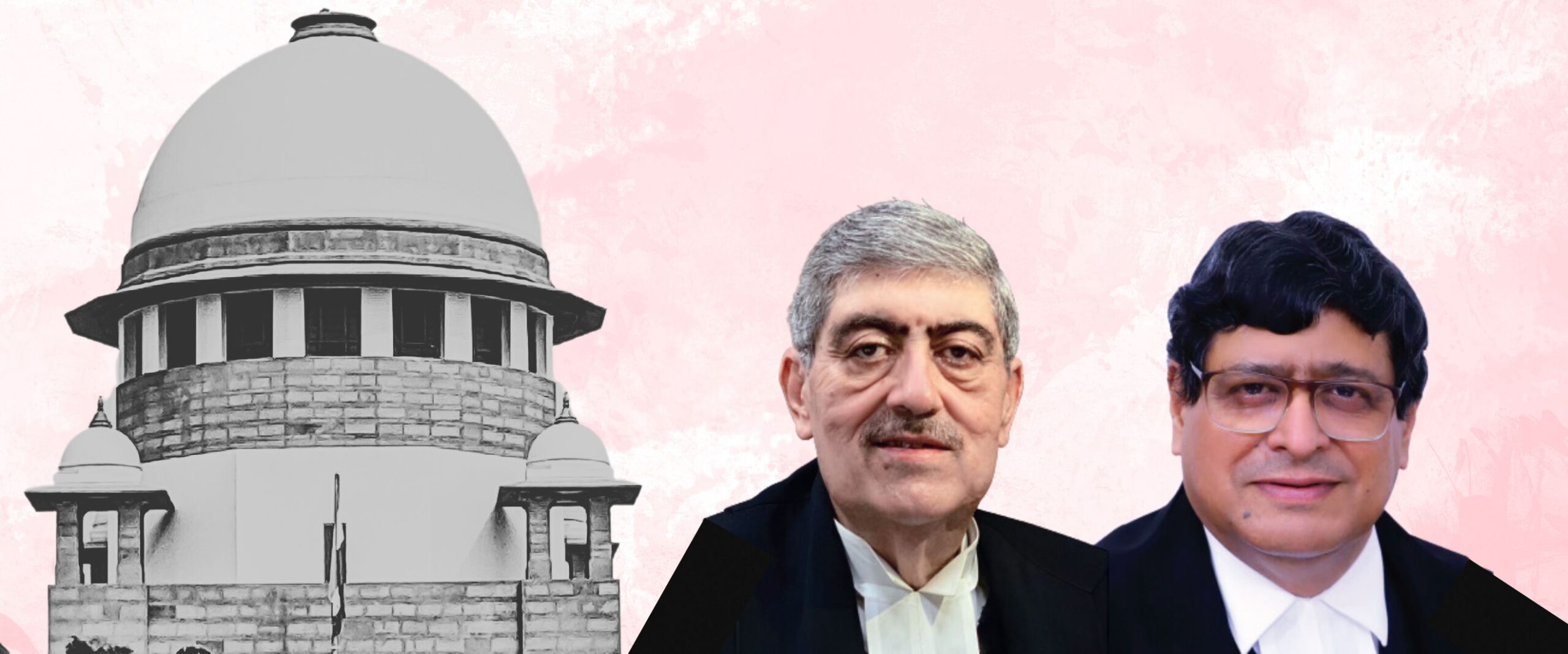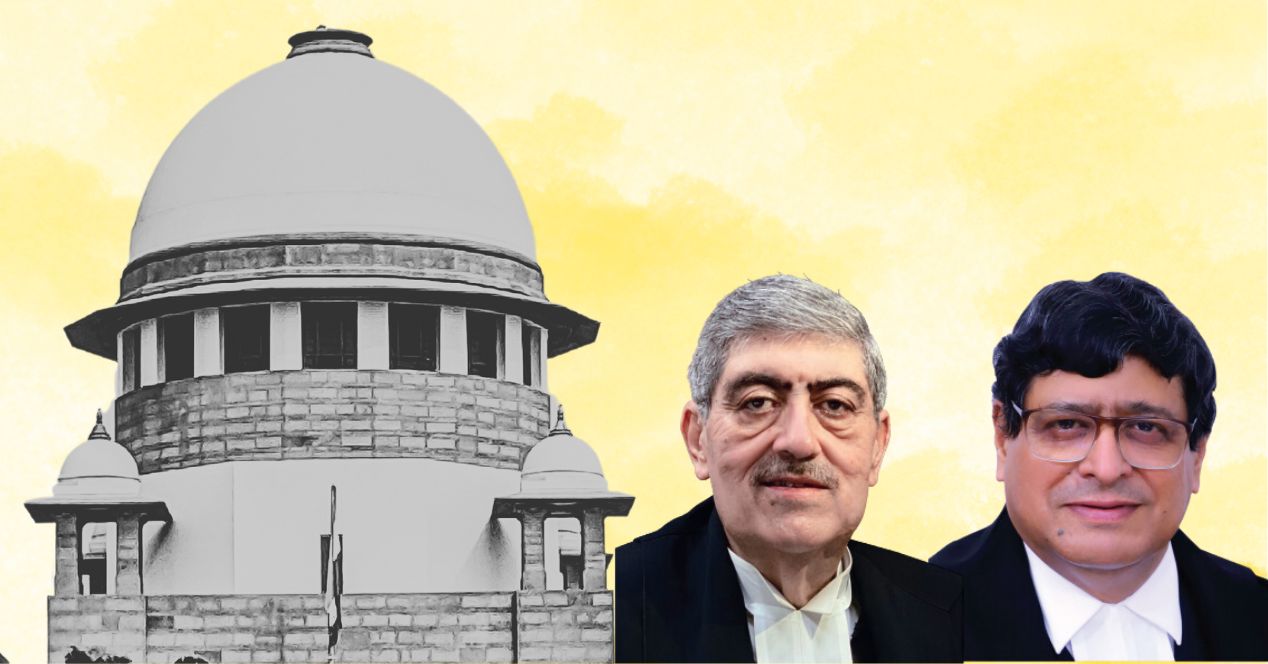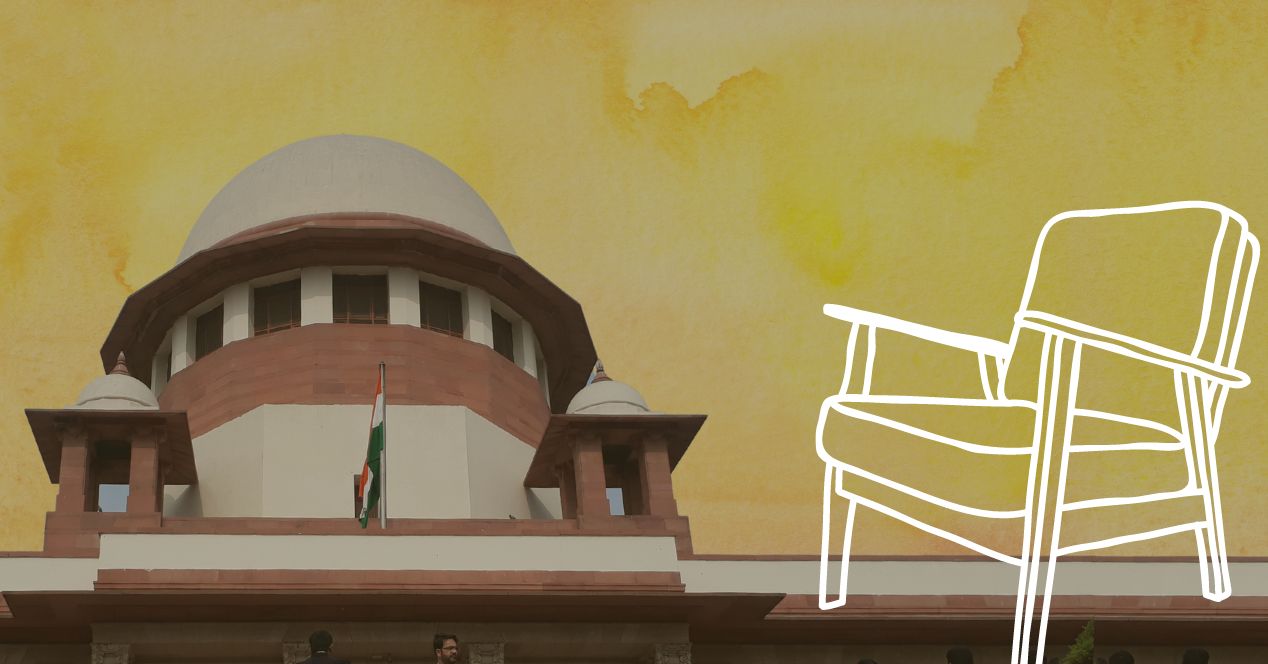Analysis
Judicial Appointments in Limbo: Supreme Court Expresses Concerns Over Delayed Collegium Recommendations
Prolonged appointments pending since July 2023 breached the timeline set by the Supreme Court for appointing judges

On 20 November 2023, a Division Bench of Justices S.K. Kaul and Sudhanshu Dhulia took note of pending collegium recommendations related to the transfer and appointment of judges.
On 7 November 2023, the Bench chided the Union government for delaying the appointment of 19 recommendations. At that time, they directed Attorney General R. Venkataramani to engage in a “fruitful discussion” with the Union.
Today, the Bench granted additional time to Venkataramani till 5 December 2023 to provide a response which would not “disappoint” the Court.
Supreme Court: Three recommendations pending since July 2023
Justice Kaul, dictating the order, flagged that the Union was sitting on the transfer of six high court judges—four from Gujarat, one from Allahabad, and one from Delhi.
Additionally, Justice Kaul highlighted that the Union government had withheld eight recommendations among recently recommended candidates. Among these recommendations, the Union had selectively accepted and appointed judges. Some of these appointed candidates were junior to those who were not appointed, breaking the seniority norm typically followed in judicial appointments. Expressing concerns, he noted that such selective appointments tend to cause uncertainty among unappointed judges about where they stand in terms of their seniority.
Justice Kaul then stated that there were five names which were pending without any communication from the Union. Further, five other names which were reiterated by the collegium were awaiting approval.
Lastly, he indicated that three recommended candidates—two from Jammu and Kashmir, and one from Jharkhand—were pending since July 2023. Noting that four months had passed since their recommendation, Justice Kaul stated that the timeline to accept these recommendations had lapsed. He was referring to M/S PLR Projects Pvt. Ltd. v Mahanadi Coalfields Limited (2021) which set specific time limits for the different stages before a judge is appointed.
The timelines in PLR Projects were as follows:
- The Intelligence Bureau was instructed to submit its report or inputs within four to six weeks from the date of the High Court collegium’s recommendation
- The Bench recommended that the Union should forward the files or recommendations to the Supreme Court within eight to 12 weeks from the date of receiving input from the State government and the report from the Intelligence Bureau.
- The Union was directed to appoint judges within three to four weeks if the collegium reiterated its recommendations.
In today’s hearing the Bench was hearing The Advocates Association Bengaluru v Barun Mitra, which is a contempt petition filed against the Union government for not abiding with the timelines established in PLR Projects.
Senior Advocate Dushyant Dave: Issue Mandamus for prompt appointment of judges
Senior Advocate Dushyant Dave argued that the Bench should issue a writ of mandamus directing the Union government to accept and appoint pending names within the next 24 hours. Dave referred to the Second Judges Case (1993) which granted the collegium power to issue a mandamus of this nature. In the previous hearing, Senior Advocate Arvind Datar had made a similar recommendation that the Bench should lay down the law under Article 141 suggesting a fixed timeline for appointments. In that hearing, Advocate Prashant Bhushan had urged the Court to adopt a strict approach rather than granting repeated opportunities to the Attorney General to consult the Union.
The Bench will hear the case next on 5 December 2023.




